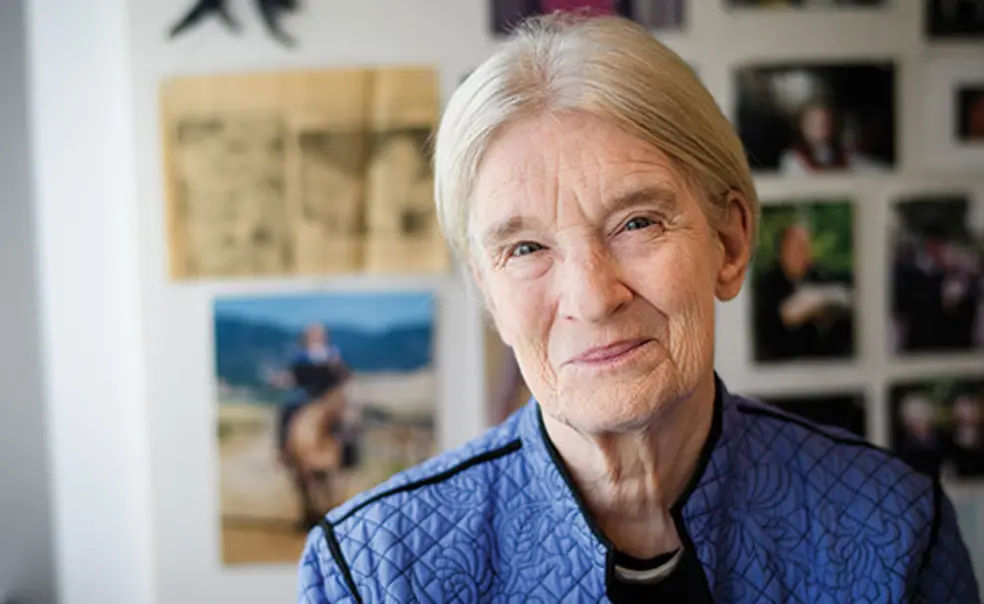Q&A: Joan Girgus on Fostering Change
For four decades, helping to improve the experiences of students, faculty
Joan Girgus came to Princeton 40 years ago as a psychology professor and dean of the college. She chaired the psychology department when Green Hall was renovated and cognitive neuroscience was launched. Since 2003 she has served as special assistant to the dean of the faculty, focusing on dual-career faculty issues and family-friendly University policies. Girgus, who will retire June 30, spoke with PAW last month.
What was it like for you when you arrived as dean of the college?
I fully expected The Daily Princetonian to have a headline that said, “Woman Appointed Dean of the College.” It did not: The headline read, “Outsider Appointed Dean of the College.” And that told me something about how people thought about the University. ... It was at the height of CAP [Concerned Alumni of Princeton]. CAP wrote a letter to the freshman parents in which they described me as a woman, which I am; as Jewish, which I am; as having been educated at and taught at a series of liberal schools — Sarah Lawrence, New School for Social Research, The City College of CUNY — and of never having been in an Ivy League school, which is true. I think the letter even asked: Do you want your child in a college led by someone with these characteristics? It wasn’t those words, but that was the gist.
What were some of the significant changes you were part of as dean?
The residential colleges, which changed everything out of the classroom for freshmen and sophomores, started while I was dean. What was women’s studies and is now gender and sexuality studies is another; it was a collaboration of Aaron Lemonick [*54, then dean of the faculty], Nancy Malkiel [later dean of the college], and me. The third is starting the freshman seminar program — and here I give credit to Stan Katz, who then was the master of Rockefeller College. He said Harvard had seminars in the houses, and he thought the residential colleges would benefit from having classroom academic things besides tutoring. We had actually been worrying in the dean’s office: All of freshman year, by and large, and much of sophomore year didn’t provide students any opportunity for any kind of academic experience except big lectures, precepts, exams. So we started to think about having freshman seminars where the topics would be narrow, students would deal with primary material, and faculty would be able to offer courses that were not standard curricular courses. I wrote a proposal for the Ford Foundation, and it funded the first freshman seminars. Those are three things that have made a difference.
How do you view efforts to achieve gender diversity on the faculty?
We would love to be more diverse than we are, especially in the faculty. There has been a fair amount of change. I think I was the eighth tenured woman faculty member, and we had potluck suppers every time a woman got tenure. And one year it was too many women; we just couldn’t do it anymore. ... I said to somebody the other day, I cannot remember the last time I was at a meeting where I was the only woman. When I came to Princeton, it was unusual for there to be another woman in a meeting. It’s that stark a change.
Adolescent depression has been a subject of your research. What are your thoughts on student stress levels and mental health?
Forty years ago, admitting you were depressed, admitting you needed to talk to someone, was very hard — impossible, really — for some students. That’s not as true anymore. I can easily imagine that students feel more stressed. I have a sense that students are voracious: It’s about “so many things that I want to study, so many things I want to be involved in, and every time I find a spare minute, I get involved in something else.”
Interview conducted and condensed by W.R.O.












No responses yet